Józef Hen
출생 : 1923-11-08, Warsaw, Poland
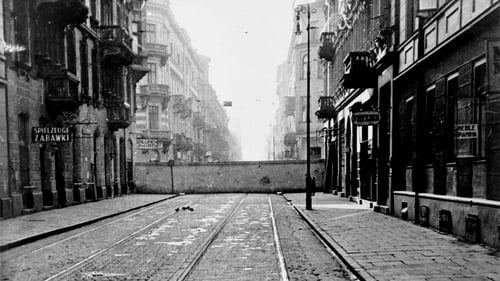
Self - Writer
The history of the Warsaw Ghetto (1940-43) as seen from both sides of the wall, its legacy and its memory: new light on a tragic era of division, destruction and mass murder thanks to the testimony of survivors and the discovery of a ten-minute film shot by Polish amateur filmmaker Alfons Ziółkowski in 1941.
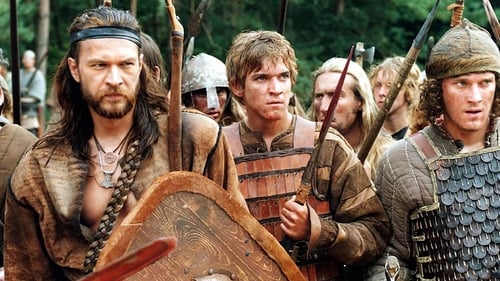
Writer
In IX century Europe, on the brink of Poland's birth, a cruel prince, Popiel, murders his cousins to ensure his son's succession. His crimes lead to an uprising of his subjects lead by the former commander of Popiel's army, Piastun, and a young hunter and warrior, Ziemowit. Meanwhile Ziemowit falls in love with Dziwa, lovely girl who is to become a priestess in the local temple ...

Writer

Scenario Writer
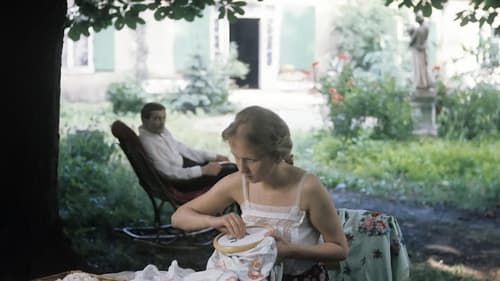
Writer

Screenplay
The action takes place in the second half of the 19th century in a small Californian town in the Wild West. Hans, a German émigré, opens a shop on one of the streets. To his annoyance, his fellow countryman, young and beautiful Lora, sets up a shop on the opposite side. There is fierce competition. Lora decides to take Hans to court. However, unfamiliar with German, the judge mistakenly marries them.
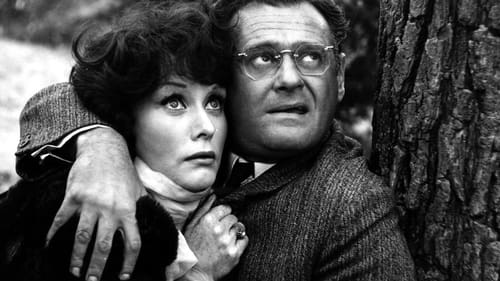
Screenplay
The first Polish film to discuss the failure of September 1939 Polish-German war. We can see it from the point of view of a university intellectual, fascinated by German culture, who decides to take active part in the conflict. Professor Gabriel Tomicki spends the last evening before WW2 breaks out quarreling with his university colleague Professor Dog-Lesniewski about the superiority of German over French culture. He finds German culture fascinating and believes neither in war, nor in Nazi barbarity. When the war begins, he tries to enlist and befriends Florentyna, a nightclub dancer and his neighbour. Gabriel falls in love with her, finally manages to become a soldier and even prove his courage. One day, he meets by chance his university adversary Dog-Lesniewski... —kinoholik

Novel

Writer

Director
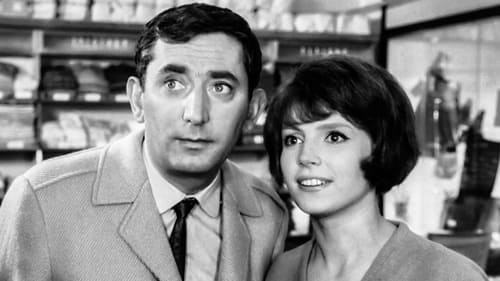
Writer
A famous Polish conductor meets a young Polish student in Czechoslovakia and pretends to be Czech to impress her.

Director
A famous Polish conductor meets a young Polish student in Czechoslovakia and pretends to be Czech to impress her.

Writer
A daughter of a furniture seller helps her father’s business by promising a marriage to the customers.

Director
A daughter of a furniture seller helps her father’s business by promising a marriage to the customers.

Screenplay
Two Poles get out of Soviet Union with Polish Army. Based on autobiographical short stories by Józef Hen.

Writer
Two Poles get out of Soviet Union with Polish Army. Based on autobiographical short stories by Józef Hen.
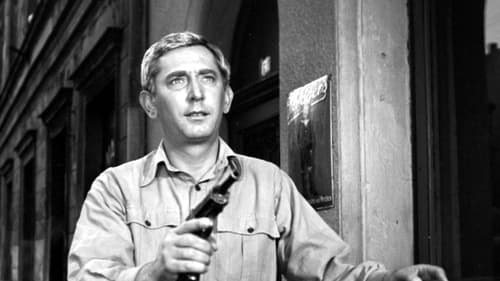
Writer
At the end of World War Two, Polish people move to the western lands vacated by Germans. But some ruthless profiteers pose as government representatives and intend to make off with loot from a deserted town they took over. One honest man stands up against them because he believes these goods belong to the people.

Writer
An engineer comes home from abroad to his waiting wife. After some time, his second wife, an Italian one, joins him. For a small town, such a triangle will turn out to be unacceptable, especially since the spouses live peacefully under one roof.
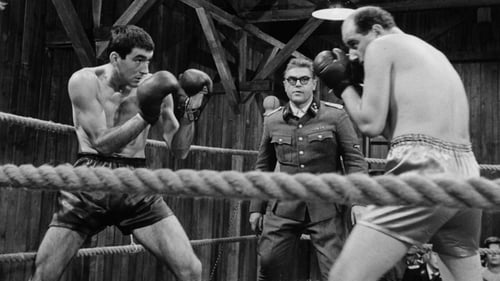
Short Story
Concentration camp commander Kraft finds out that prisoner Kominek is a former professional boxer. Overnight, the prisoner is made Kraft's exercise partner and unwillingly rises to a privileged position at the camp. His anger over the death of his friend and co-prisoner leads to open revolt. The film brings a new view of human degradation during fascism by a tragic story of one man whose only chance for survival is to accept the rules of an unequal game.

Screenplay
Concentration camp commander Kraft finds out that prisoner Kominek is a former professional boxer. Overnight, the prisoner is made Kraft's exercise partner and unwillingly rises to a privileged position at the camp. His anger over the death of his friend and co-prisoner leads to open revolt. The film brings a new view of human degradation during fascism by a tragic story of one man whose only chance for survival is to accept the rules of an unequal game.

Scenario Writer

Novel
Set at the end of the war. A hot-headed colonel tries to force his men on to heroics although the war is almost over. A war-weary lieutenant tries to muffle his efforts but he keeps on with his men and is killed fighting in the front lines, all his men decide to get his body.

Writer
Set at the end of the war. A hot-headed colonel tries to force his men on to heroics although the war is almost over. A war-weary lieutenant tries to muffle his efforts but he keeps on with his men and is killed fighting in the front lines, all his men decide to get his body.

Novel
"In 1960 Kazimierz Kutz' second film NIKT NIE WOLA / NOBODY'S CALLING, based on a Jozef Hen novel that was never published in Poland, described the fate of Poles on the Eastern Front. Kutz used the film to explore new formal solutions, collaborating closely with cinematographer Jerzy Wojcik to reveal the psychological landscape of a pair of lovers who are strongly affected by wartime events. The camera recorded the couple's inner experiences, contrasting their muted intimacy against the surrounding scenery of a ruined town. The film did not win over critics at the time of its release. It was not until later that critics recognized Kutz's effort to experiment with aesthetics in a manner akin to that pursued by filmmakers of the new wave. NOBODY'S CALLING came to be compared with Michelangelo Antonioni's THE ADVENTURE, which was produced around the same time."

Screenplay
"In 1960 Kazimierz Kutz' second film NIKT NIE WOLA / NOBODY'S CALLING, based on a Jozef Hen novel that was never published in Poland, described the fate of Poles on the Eastern Front. Kutz used the film to explore new formal solutions, collaborating closely with cinematographer Jerzy Wojcik to reveal the psychological landscape of a pair of lovers who are strongly affected by wartime events. The camera recorded the couple's inner experiences, contrasting their muted intimacy against the surrounding scenery of a ruined town. The film did not win over critics at the time of its release. It was not until later that critics recognized Kutz's effort to experiment with aesthetics in a manner akin to that pursued by filmmakers of the new wave. NOBODY'S CALLING came to be compared with Michelangelo Antonioni's THE ADVENTURE, which was produced around the same time."

Writer
Two zootechnics students, Jacek and Marek, come to the Bieszczady (it's the Polish "Wild West"). Looking for a holiday adventure and income, they become "cowboys" on local cattle grazing. Instead of the expected romantic adventures and the male, hard life, their boredom is becoming their share. Only when Jacek gets a stallion Szaga, things take a different turn.
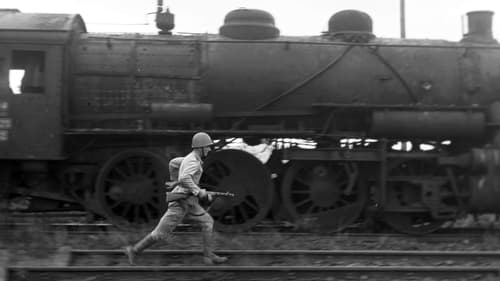
Screenplay
Three episodes showing the repercussions of war. A soldier is awarded with the Cross of Valor and vacation to home. But instead of his village, he finds only the charred ruins. A stray dog turns out to be the former guard at Auschwitz. A young widow is hailed as the wife of the hero but dreams of something else.



















